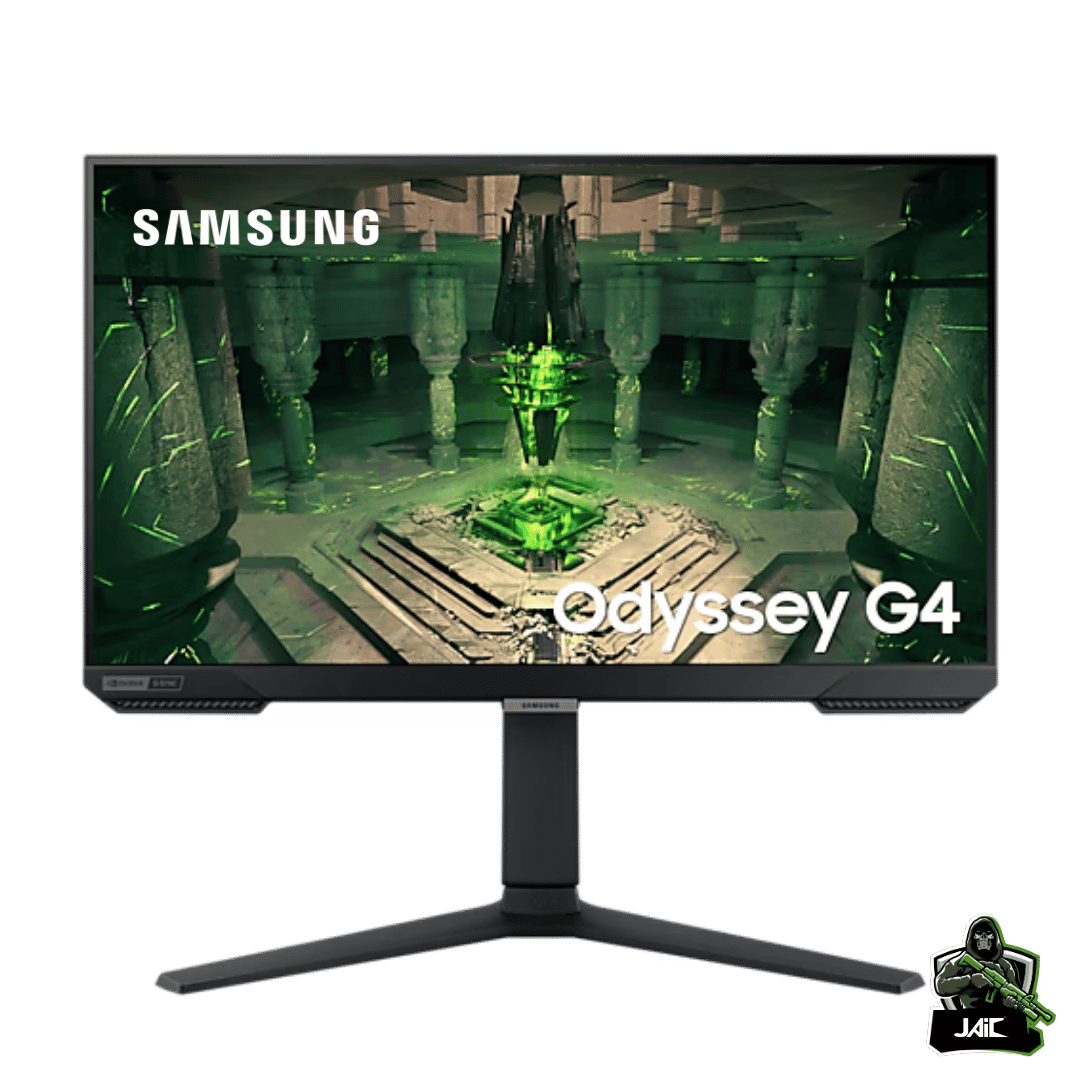Samsung 25″ Odyssey G4 G40B FHD 240Hz Gaming Monitor
රු96,500.00 රු124,000.00
| Weight | 6.3 kg |
|---|---|
| Dimensions | 42.9 × 62.8 × 16.3 cm |
| Screen Size | 25 inches |
| Resolution | Full HD (1920 x 1080) |
| Refresh Rate | 240Hz (Ultra-smooth gameplay) |
| Response Time | 1ms (GtG) |
| Panel Type | IPS (In-Plane Switching – Wide viewing angles and vivid colors) |
| Aspect Ratio | 16:9 |
| Brightness | 400 nits (Typical) |
| Contrast Ratio | 1000:1 (Static) |
| Color Support | 99% sRGB coverage |
| Adaptive Sync | AMD FreeSync Premium & NVIDIA G-SYNC Compatible |
| HDR Support | HDR10 |
| Connectivity | 1 x DisplayPort 1.2 2 x HDMI 2.0 1 x USB Hub (varies by region) 1 x 3.5mm Headphone Jack |
| Stand Features | Height Adjustable Pivot Swivel Tilt |
| VESA Mount Compatibility | 100 x 100 mm |
| Design | Sleek, futuristic gaming aesthetic 3-side borderless design |
| Game Features | Black Equalizer Crosshair Overlay Low Input Lag Mode |
| Eye Care Features | Flicker-Free Technology Eye Saver Mode (Blue Light Reduction) |
Brand
Samsung
Samsung first entered the electronics industry in 1969 with several electronics-focused divisions. Their first products were black-and-white televisions. During the 1970s the company began to export home electronics products overseas. At that time Samsung was already a major manufacturer in Korea, and it had acquired a 50 percent stake in Korea Semiconductor.
The late 1970s and early ’80s witnessed the rapid expansion of Samsung’s technology businesses. Separate semiconductor and electronics branches were established, and in 1978 an aerospace division was created. Samsung Data Systems (now Samsung SDS) was established in 1985 to serve businesses’ growing need for systems development. That helped Samsung quickly become a leader in information technology services. Samsung also created two research and development institutes that broadened the company’s technology line into electronics, semiconductors, high-polymer chemicals, genetic engineering tools, telecommunications, aerospace, and nanotechnology.
Samsung was founded as a grocery trading store on March 1, 1938, by Lee Byung-Chull. He started his business in Taegu, Korea, trading noodles and other goods produced in and around the city and exporting them to China and its provinces. (The company name, Samsung, came from the Korean for “three stars.”) After the Korean War, Lee expanded his business into textiles and opened the largest woolen mill in Korea. He focused heavily on industrialization with the goal of helping his country redevelop itself after the war. During that period his business benefited from the new protectionist policies adopted by the Korean government, whose aim was to help large domestic conglomerates (chaebol) by shielding them from competition and providing them easy financing. In the late 1950s the company acquired three of Korea’s largest commercial banks as well as an insurance company and firms that made cement and fertilizer. Samsung in the 1960s acquired more insurance companies as well as an oil refinery, a nylon company, and a department store.

Based on 0 reviews
Be the first to review “Samsung 25″ Odyssey G4 G40B FHD 240Hz Gaming Monitor”
You must be logged in to post a review.





















































There are no reviews yet.